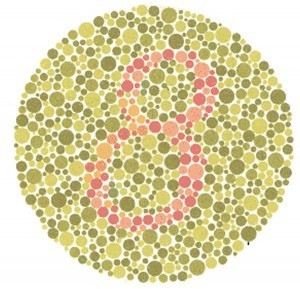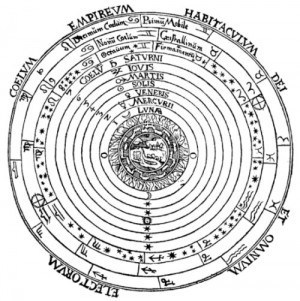Paschal greetings to the men of ROK! This week, we continue the philosophical series upon certitude.
Last week, we discussed how truth subsists in a judgment where there is a real correspondence between a “thing” (Latin res) and an intellection (perception/understanding); I noted the difference between the objective and subjective element in the judgment of Truth, with an emphasis on dispelling the prejudicial assumption we have in modernity, by which “objective” and “subjective” correspond most closely to “true” and “false.” Rather, objective truth is the truth of the “thing’s” side in this judgment, and subjective truth is the truth of the intellection.
Thus, a judgment may be true before we are certain of it; moreover, certainty is not an emotional feeling of “sureness,” but is the result of reflection, whereby we become fully aware of the actual truthfulness of a judgment—thus, certainty does not exist where a judgment is false, no matter how certain one “feels” about it. We remember putting our keys in our pocket; we judge it to be true, that our keys are in our pocket; and, truly, they are. Still, we put our hands in our pocket and feel them—now we are certain of the truth of our judgment. Truth or untruth is in this sense independent from our certain knowledge; our judgment was true before we were certain.

Okay, maybe truth is not quite this independent from our certain knowledge.
Contrarily, we feel sure that we have seen something coming at us from the corner of our eye, and we flinch, wheeling around to see what it is; actually, there was nothing there—probably just a fleeting shadow or darting bird. We felt sure that something was coming at us (indeed, this feeling was stronger than our assuredness that our keys were in our pocket), but further examination proved us wrong.
Certitude is thus the result of reflection upon the true judgments that we make, whereby their truthfulness becomes evident and confirmed for us. Evidence, etymologically, comes from e vidente (“from the perceiver/seer”)—i.e., something manifest, and plainly seen. Truth is not a mere apprehension, but a judgment; certitude is not a feeling, but a verification of that judgment on the basis of evidence, i.e., of things which are manifest.
The problem then becomes: What is manifest? What is evident? A philosophical analysis arrives at two basic principles that bear upon this problem; but for most modern men with modern prejudices, the mind is likely to pose a false problem, before it gets to these. Cardinal Mercier mentions that, since the time of Descartes, the question is usually posed: “Is human reason able to know things as they really are? Or, in other words: can we attain to a consciousness that our ideas are conformable to things as they are in themselves? How can the mind arrive at an assurance of this conformity?” He rejects this problem on sensible grounds.
First, he points out that this is an incomplete formulation of the problem, since the main concern we have in discussing our certitude of objective truths, is whether the relations we perceive between things, exist apart from our perception of them. I.e., rather than wondering whether you and I see violet in the same way is not the primary concern in this context, but whether whatever is manifest to me as violet, is an actually extant thing whether I am perceiving it or not. Mathematical truths can sometimes illustrate this better: are 2 and 2 equivalent to four, whether I am perceiving these quantities or not? Such relations as these are more easily understood as concepts which are less filtered by our perceptions.

We already know perception differs; but what of the perceived phenomenon itself?
More importantly, he points out that “a thing as it exists considered without reference to our knowledge is, as far as we are concerned, as if it did not exist, a pure non-entity.” Not because the thing does not/cannot exist apart from our knowledge, but because it is an absurdity to talk about our knowledge of it apart from our knowledge of it. “It is, then, an absurdity to try, under these conditions, to form a comparison between a mental representation [i.e., our knowledge of the thing in our minds] and the-thing-in-itself.”
Correlating to this, he points out that “a cognition is an immanent act which necessarily partakes of the nature of the subject knowing,” in conformity with the maxim of St. Thomas: cognitio est in cognoscente ad modum cognoscentis (“the thought process is in the thinker according to the thinker’s own manner”). That is to say, we have only one tool for perceiving and thinking—the human intellect—and there is no such thing as an exact identity between our thought process, and the thing of which we think; one is a thing, the other is a mental representation, or perception, of the thing. That thing is perceived and represented to us according to the manner of our own nature. I perceive colors based on the nature of the eye and the mind’s capacity for mentally representing these sense impressions to me; and even the abstract concepts I can imagine in the mind, occur according to the nature of the human mind. I don’t doubt that an angel, for example, perceives objects differently from me, having an entirely different nature, and therefore a different manner of perception and manner of cognition.

Saint Benedict’s Perception Transfigured by an Intellection of the Divine Light
I see a red ball and my mind represents it to me in a certain way; far be it from me to think that some other entity would perceive or mentally represent its perceptions in the same way. For me, what that object is-in-itself, abstracted absolutely from my knowledge of it, is a closed book.
All that matters, is whether my perception and judgment corresponds to something real, though I can only approach that real object according to my own nature and manner of perception and of cognition. Thus, as the Cardinal points out, the real problems of Criteriology resolve into two: the problem of the form and matter of the judgment.
The first, the form of the judgment, is a question of the mental synthesis by which we affirm the agreement of the subject and predicate in our judgment. Some (like Kant) say that the perception of an agreement of the two terms in a judgment (i.e., two and two on the one hand, and four on the other) is purely determined by the nature of the thinking subject. The Cardinal’s opinion is that the impression of an identity or correspondence between these two terms, is moved by something outside the thinking subject—i.e., it is due to a manifestation of an objective relation, to a fact that the concept “two and two” really corresponds to “four,” and the subjective thinker merely acknowledges this according to his own manner.
The Cardinal is careful to point out, here, that this question of the form of the judgment is a separate issue from whether those concepts are really extant things. So, for example, perhaps there is no such thing as “two” or “four” in the objective order of things, and these exist only as conceptualizations represented to ourselves in the mind. The question then, is whether the equivalence we perceive between the conceptualizations “two and two” and “four” results from a real relation of the concepts as such, or whether even the judgment of their equivalence is a creation of the thinking subject. Or: perhaps there is no perfect sphere really existing anywhere; yet the mind, reflecting upon mathematical and geometric principles, sees that the volume of such a thing would be equivalent to four-thirds of pi times the cube of its radius. This question of the form of our mental judgment, asks whether the mental synthesis by which one perceives the identity in that relation is determined by the nature of the thinking subject, or whether the relation of the terms in that judgment exists objectively. This question is the question of the objectivity of the ideal order (i.e., the objectivity of ideas themselves).

It can be difficult to think of an apt image for illustrating the question of the objectivity of the ideal order in the mind.
The second question, regards the matter of the judgment. That is to say, do our concepts correspond to things that really exist? Are there spheres? Do the concepts of “two” and “four” correspond to any real thing? As the Cardinal puts it: “Are the terms of our judgments pure creations of the mind, with no counterpart in real fact, or are they trustworthy representations of objects which really exist? This second problem is that of the objective reality of our concepts.”
So, our examination of certitude and truth will focus upon that. But something must be determined before we may do that effectively. As the Cardinal says: “The object of epistemology is to analyse and to verify our knowledge of truth, and so of every truth. Consequently it is both legitimate and necessary to ask whether at the outset we may presuppose anything at all, and what we may presuppose. This is the question concerning the initial state of the mind of one inquiring into the main problem of certain knowledge.”
I will say that this is one of the things that appealed so much to me about the authentic, traditional Christianity. When I was an atheist, I casually assumed that Christians acted on “faith,” which I imagined was blind by definition, and made all kinds of unwarranted assumptions. But when I discovered the Fathers of the Church, and then especially the Scholastic Doctors, I saw that an appreciation of clear, true, careful thinking was everywhere in evidence. Here in Mercier, and in many other authors (such as St. Thomas), I always found great care in examining first principles, ensuring that unwarranted assumptions were being avoided, careful attention to the implications of ideas, a readiness to play devil’s advocate, etc. In fact, to be blunt, I saw that the Christians, contrary to popular myth, seemed more open to critical self-examination than other thinkers. I have profited immensely from this example, and the fruits it has borne.

The Venerable Bede, whose care to find accurate information was admirable in his time.
I hope you all are enjoying the series, and do not find it too boring or incomprehensible. I am learning as we go along, too, so I hope I am able to explain things more or less clearly. Let me know!
Read More: How Philosophy Can Revive Your Dormant Critical Thinking Skills
I have always operated from the basic stance that the whole of existence is known to me only through limited human perception (perhaps even arguably that which I am allowed to perceive based on my current capability to fathom/reconcile it); therefore, any inability to provide/discover tangible evidence of a thing is not necessarily proof of its non-existence, but may just as likely be the fallibility of my self (or of others) to comprehend it.
Keep the good work coming, if nothing else these types of articles are a great way to spur deeper thought/musing, especially before a weekend.
Einstein would have agreed with you. I just learned that he was a pan-theist, believing that the universe is too vast and our knowledge of it too infantile to make any real statements about the existence of God or divine forces. I found this interesting as he is often misrepresented as an atheist, when in fact he criticized both atheists and theists, but tended to be more critical of the former for what he saw as their post-religious exuberance.
Is it possible to have any degree of certitude without visually perceiving the objects in our world? Yes, it is. So, we’re left with the idea that knowledge is not a static entity known by us who see it everyday and give it a name like the “black cat” instead we’re left with the idea that the blind person from birth must also know the “black cat” without ever actually seeing a black cat.
hence the saying ‘like a blind man, in a dark room, looking for a black cat, that doesn’t exist’
(rowan atkinson)
Amazing quote from a guy who once shaved his tongue on the tonight show(no, not this clip)
He’s a funny guy. And I think all men should shave their tongues. But not completely. Just having a little yellow goatee bit at the tip of your tongue to look trendy
Thank you for another superb essay. I read a great quote once along that lines that “good science cannot exist in the absence of Catholicism because only Catholics believe in an objective reality outside of power, and only Catholicism provides the fundamental tools to examine that reality”. I wonder what your thoughts are on that.
How can I get in touch with you, Brother? I would like to talk with you about a recent experience of mine.
One would first have to define what one means with ‘two and two’ and ‘four’ in the context of the real world. To be more precise, one would even have to define the meaning of the word ‘and’ in this context. Does it, for example, mean to put two sheep into another place where already two sheep exist? Mathematics, in this case, is concerned with amounts – and nothing else. If the amount that results from the function on the left side of the equation is equal with the amount that results from the function on the right side of the equation, we say that the equation is true. But what does ‘and’ mean in the context of the real world? If we talk about two sets of two sheep and then another set of four sheep, there is an ocean of difference between those two – their position, their status in their herd, their relationships between each other, their nourishment, etc. The only thing equal is the amount of sheep.
I admit I am confused by parts of this article, but I am looking forward to more.
As I see it, the world does not exist without the thinker – or rather, without conciousness -, at least not in the sense in which we know it. A cool example of this is the vast amount of empty space inside even very solid matter. It is one’s physical nature which gives meaning to physical reality. If one were neither restricted by, nor visually or otherwise aware of all the particles and waves, they could just as well not exist. What we see as solid matter only appears so because this seeming solidity has relevance to our physical existence; it binds us, restricts us, forms us. If I did not exist in the form of atoms, would atoms actually exist for me? I could move through and around them without noticing them. And whether this is true or not, one may argue that the whole of reality is perhaps a mere idea; that there is no distinction between consciousness and material reality. Of course, for this, one has to assume some kind of godly or divine presence that is consciousness itself and connects everything and everybody; this is so because the idea would be ridiculous if one assumed consciousness to be somehow spacially restricted to the brain of each person.
That’s a good pick for an example to use sheep. The word ‘sheep’ can be plural or singular. Also the speed or velocity of the sheep has some bearing since as the sheep approach the speed of light, then the light will pass through the sheep making them seem opaque and then eventually ‘invisible’ when they reach the speed of light, since light passes through and does not reflect off of matter travelling at the speed of light. Sheep travelling at the speed of light you would observe as being somehow transformed and you would assume they would then no longer be sheep but that they morphed into some quanta of amorphous energy. The sheep whizzing by though wouldn’t consider themselves in a state of amorphous dissolution. They’re still sheep but they would see you as a frozen ‘still frame’ with zero velocity.
NOW consider if the sheep’s ‘velocity’ is not straight line motion but rather circular, a very tiny gyration, a ‘signature’ vibration with a microscopically tiny footprint and repeating total trajectory that has countless millions of peaks and valleys like an intricate spyrograph design. This complex ‘vibration’ trajectory path plotted repeats trillions of times per nano second. The object (sheep) appears to be stationary yet it vibrates at the speed of light. The sheep is ‘energized’ with a force causing the mass to absorb and transduce light. It will appear invisible or it may consciously radiate what it has absorbed. Call this fancy fingerprint signature vibration ‘life energy’ for the sake of arguement. A sheep hyper illuminated or energized is a poor example. I’d presume a man who is an exhalted leader of other men to be hyper energized in this fashion since they radiate and the men who follow or orbit their leader reflect with the same energy. Also without physically seeing a being or figurehead you can find yourself in a region of timespace where a complex fingerprint energy field exists and be moved by it.
That was an interesting read, although I admit I did not understand much of it. Your point about a radiating leader is cool though and I want to agree.
Perception based analyzes are always imperfect truths. Truth after all, but they are non exact. Empirical science is imperfect by defnition.
Certainty can only be obtained from the inside: pure reason and a priori knowledge.
Short answer: we will never know if we can attain certitude through our perceptions, and for all practical purposes we can live with that without any problem. Spending time debating the nature of reality and the nature of our perception of reality is just another way to distract ourselves from the very reality we are debating, therefore missing the point entirely. The more you search the truth, the further away from it you’ll end up. Past and present so-called Scholars are and will be of no help, including you. Now, THAT’S the truth. HA! 🙂
This was probably one of the most important articles on ROK in recent weeks, by one of its more intellectually astute and genuine contributors. Yet due to a general lack of cognition among the australopithecine audience, it has probably also been one of the least discussed. I hope men will once again discover the value of discussing the meaning of life, and how we know what we know, under the laurel tree. Life is not all about gathering tactics for sticking your flesh spear between the legs of some dull though heavily boobed accomplice or talking a bunch of crap in order to impress an unworthy listener. Sometimes it takes a bit of thought to get at truth. Yes, sometimes this requires the communication of more than two ganglia, which is admittedly hard when the flashy cell phone calls. But focus, intelligent thought, and deliberate communication are the hallmarks of the well rounded man.
It is the quest for certainty that is at the root of many errors in philosophy. As Augustine observed “Perception never errs, but judgement often does”. What is needful is not a method for obtaining certainty, but a method of becoming less wrong over time. In turn, this tells us there are really only two types of knowledge – that which we have learned to be wrong, and that which we have not yet learned to be wrong. In politics, this method is constitutional democracy. In law, it is the case method and the jury trial. In the physical sciences, it is experimental research. All of these have in common the notion of conjecture and refutation. All of them are consistent phenomenon that, quite often, every thing we think we know on a subject is wrong. Even in an uncertain universe, we can rank relative probabilities ordinally, even if we cannot cardinally. We can thus make decisions rationally, without certainty. The focus must be on the state of knowledge at any instant in time, but on the processes that help us improve our knowledge.
Another important piece. The loss of certitude has been perhaps one of the most corrosive aspects of recent thought. If any argument can be dismissed as “individual truth” rather than truth in fact, the thinker is discouraged from delving deeper into thoughts that may encourage them to question the society we live in.
The loss of certitude has also opened the door to the current misguided idea of tolerance. For if we are not necessarily right, and others are not necessarily wrong, who are we to condemn their faults? But if we can demonstrate certainty in the truth of a principle, we are able to condemn the ways of the foolish.
Thank you Aurelius Moner for your thoughtful words.
I’ll be printing your articles from now on, read them in the morning and take note.
Have you read Otto Weininger’s Sex and Character ? He makes an interesting point on the difference between perception and sensation in it.
As far as the existence of the res in ipsa of matter, I’ve always had a soft spot for Berkeley’s idealism: namely that matter doesn’t exist absent our perceptions, except of course for in the Mind of God. His will is all that sustains the apparent consistency of our common empirical experiences. This notion is delightful to me, if only for its sheer counter-intuitiveness (for moderns at any rate. Ancient Man often accepted prima facie the transient and ephemeral nature of the sub-lunary world).
As you can imagine the concept is not without major flaws, but it isn’t as crazy as you would first think and solves the problem of the limits of empiricism.
He makes his argument in the dialogues of Hylas and Philonous (Greek names roughly translated as “Matter” and “Love of Mind”). If nothing else it will leave you questioning reductive materialism.
Is it true the moderns did not ask the question whether the relations between things do exist apart our perception? Isn’t the modern nominalism an indication they asked this question and their answer was no?
In the form of judgement part you write that the concepts don’t need to be extant things. How can there be a real relation of the concepts when the concepts are not real?
This leads to another question. I read the objectivity of ideas themselves as the same as objective reality of our concepts. But that is not what you mean, am I right?
Are the concepts representations of ideas in our mind while ideas are independent of concepts and of things? Or are concepts in your view the same as ideas?
Thanks again. Great article. It’s interesting to compare this approach to Descartes. In time you should probably think about publishing these articles as an ebook. I think many may benefit from it.
You have to be careful here. Questions based on the limits of human neurology are easily used to undermine all confidence and self-acceptance for the purpose of rendering people confused and helpless, amenable to manipulation. In fact, they usually are.
33
The eyes and ears can be decieved……